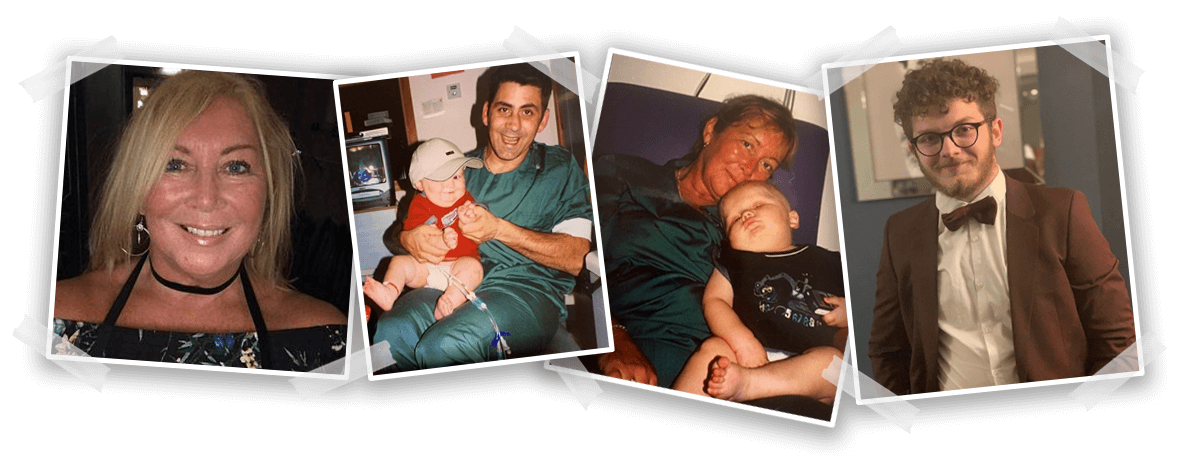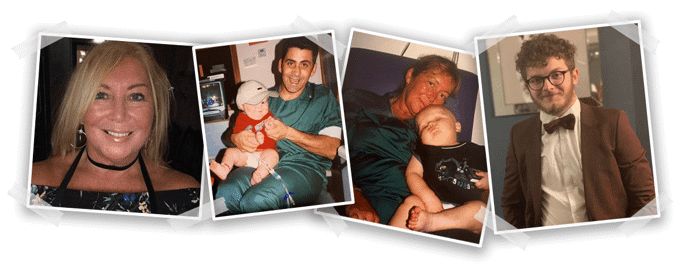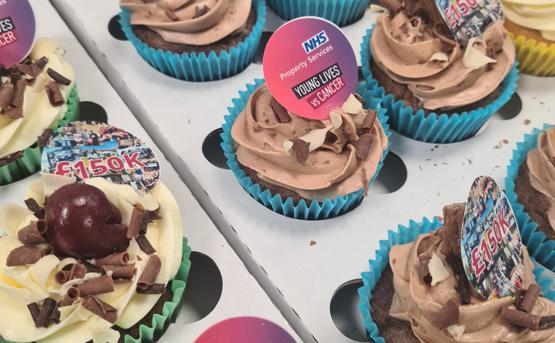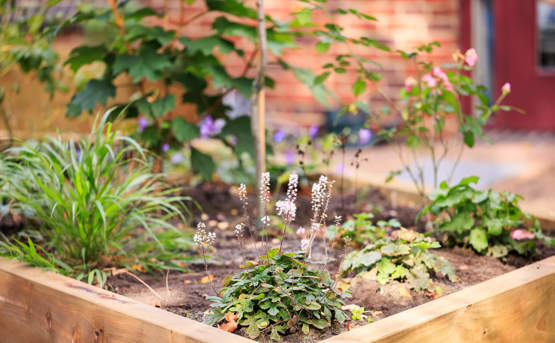
Published date: 03 September 2021
Childhood Cancer Awareness Month
This month is Childhood Cancer Awareness Month so NHSPS colleagues are hitting the fundraising hard to support our new charity partner, Young Lives vs Cancer, and this story explains just how important they are. After her eight-month old son was diagnosed with cancer, our very own IT Project Manager, Julie Arnaoutis, felt like the world had fallen out from underneath her. Here she describes the rollercoaster of Dimitris’ first years and how Young Lives vs Cancer supported her family when they so desperately needed it.


Julie stands alone in the hospital corridor with the words of the consultant ringing in her ears: “Your son’s dying. He needs a bone marrow transplant or he won’t make it.” At first, the news just won’t sink in. "This can’t be right," she thinks, "this can’t be happening, they must have it wrong."
The past six months had already been a huge, emotionally charged rollercoaster: Julie had taken her five-month-old son Dimitris to her local doctor after he picked up a fever and cough. He went for blood tests and saw more doctors and nurses before a consultant at Poole Hospital said, “I think your son’s got leukaemia, I want you to go to Piam Brown in Southampton Children’s Hospital straight away.”
Julie had no idea that Piam Brown was a children’s cancer ward until she found herself walking around it in a daze, looking bewilderingly at children with no hair, attached to central lines and drips. “You can’t digest it, you’re just in pieces,” recalls Julie. “They’re showing you around the ward – ‘there’s the fridge, here’s a cupboard in the kitchen where you can put some stuff in’ - and I’m thinking, ‘why would I want to put stuff in the kitchen? I’m not staying here.’ You’re in denial, you literally can’t compute it.”
Julie’s life was suddenly turned upside down. She was working at Barclays' head office on the IT Service Desk when she received the call asking her to take Dimitris to Southampton Hospital. She told her colleagues, “I’m just popping out for lunch” - Julie didn’t go back for two and a half years.
“When you’re in that situation, it’s almost surreal. You’re thinking, ‘this can’t be my life, this can’t be happening. It’s terrifying, absolutely terrifying.”
Dimitris spent his first birthday in hospital and because he was at risk of infection, his two older sisters, Meara and Eleni, were unable to join their mum and dad. “You’re just fighting for each day,” explains Julie, “so although it’s a milestone that you celebrate, you’re just in total fear that you’re not going to see the next one.”
Julie didn’t see her daughters for about four months as she shielded her son from any infections. “It was heart-breaking because they were obviously really, really worried, but they also want their mum and dad. And I couldn’t give them that. So your heart feels like it’s ripped in two.”
Julie’s family experienced the euphoria of hearing that Dimitris didn’t have leukaemia, only to find out later the crushing news that he had a much rarer type of blood cancer, HLH (Hemophagocytic Lymphohistiocytosis). His chances of surviving the transplant operation were about five percent.
The bone marrow transplant unit was based at Bristol Children’s Hospital, nearly 80 miles away from the family home in Bournemouth. All Julie and her husband really wanted to focus on was getting their baby son better, but the pressures of mortgage payments, household bills and childcare weighed heavily on them. Questions led to more questions: How are we going to get to Bristol? What are we going to do? How are we going to survive?
“When they said we’ve got to be in Bristol we were, like, ‘how is that going to work?’”, recalls Julie. “I’d been off work for six months by now, my husband’s not working at all and you’re thinking, ‘how are we going to do this?’ I couldn’t afford to have a mortgage on a house and go and rent somewhere. I was thinking of pitching a tent!”
That’s when Julie met a Young Lives vs Cancer social worker who told her about Sam’s House, one of the charity’s 10 Homes from Home providing a free place for families to stay when their child is going through cancer treatment. They’re close to principal treatment centres, helping families avoid the extra financial burdens of travel, accommodation and food costs.
“When I heard about the Home from Home, I cried,” says Julie, “I broke down because it’s relief, it’s pure relief. My social worker was amazing - there’s somebody who’s stepped forward like your knight in shining armour. They are there to take a chunk of pain away from you and to allow you to concentrate on the critical thing, which is your child.
“When you’re in that situation, suddenly you have no money coming in, that is a strain in itself, so to not have to worry about paying for accommodation was huge. I dread to think what would have happened if we couldn’t have stayed in the Home from Home. I don’t know how we would have managed, it is a complete life-saver. It can make the difference between coping and not coping.”
The bone marrow transplant was a success and although it was touch and go for a while, Dimitris defied the odds and he slowly, slowly recovered from the blood cancer.
“I can’t believe he’s now 19 and you look back and you think, ‘he never really was’” says Julie reflecting on the traumatic first years of her son’s life.
Today, Dimitris is back in Bristol but this time it’s not for an operation - he’s in his first year studying Architecture at Bristol University and Julie couldn’t be prouder!





